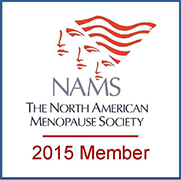Health Issues
Cholesterol is essential to help the body to create and maintain healthy cells and some hormones. About 80% of cholesterol is made by the liver, and the other 20 % comes from the food you eat. However, too much cholesterol can lead to the build up of plaque inside of the blood vessels; making it harder for the blood to flow through. This puts you at an increased risk for high blood pressure and having a heart attack or stroke.
Checking Cholesterol Levels
In most cases having too much cholesterol does not produce any symptoms; the only way to know if you have high cholesterol is through
a blood test. Getting your cholesterol checked provides information about your risk for developing heart disease, and helps you make changes to your physical activity levels and eating habits.
Remember: you are not allowed any food, beverages, or medications approximately 9 to 12 hours before the test. This is in order to obtain more accurate results.(3)
Cholesterol Level Factors
According to the Dietitians of Canada, several factors can influence the levels of cholesterol in the body.
Factors Include:
-medical history
-genetic background
-gender
-age
Understanding Results
The blood test gives information about total cholesterol, LDL cholesterol, HDL cholesterol, and triglycerides. In Canada the results are given in millimoles per liter (mmol/L).(4)
Total Cholesterol
-measures the amount of cholesterol in the blood (both HDL and LDL).(4)
-Canadian Heart and Stroke recommends aiming to be less than 5.2 mmol/l
LDL (low density lipoprotein)
-also known as “lousy cholesterol”
-LDL comes from a diet high in saturated and trans fats.
-Having too much LDL can result in plaque building up inside of blood vessels; which restricts the flow of blood and can lead to a heart attack or stroke.(3)
-Canadian Heart and Stroke recommends aiming for less than 3.5 mmol/L.(4)
-also known as “healthy cholesterol”(3)
-HDL helps to break down and carry away built up plaque from the arteries; which helps reduce the risk of heart problems.
- Canadian Heart and Stroke recommends that HDL should be higher than 1.0 mmol/L in men and higher than 1.3 mmol/L in women.
Triglycerides
-Triglycerides are a type of fat found in the blood and body which has been linked to heart disease.
-It is not a type of cholesterol
- Canadian Heart and Stroke recommends that triglyceride levels should be less than 1.7 mmol/L.(4)
Dietary Recommendations
- 45-75 grams of fat per day for women.
- 60-105 grams of fat per day for men.
Sometimes you can add extra fat into your diet without knowing it.
Did You Know...
•1 cup of shredded cheddar cheese has 37 grams of fat.
•10 pieces of potato chips has 7 grams of fat.
•1 tablespoon of peanut butter has 6 grams of fat.
Steps to Reduce Risk of Heart Disease
Dietitians of Canada recommend these healthy steps to reduce your risk of developing heart disease:
-Eat foods that are lower in fat (especially saturated and trans fat) and increase your fibre intake
-Enjoy regular physical activity
-Make a plan to reduce or quit smoking
-Maintain a healthy body weight.
For more information on healthy eating and tips to reduce risk of heart disease, please visit:
Dietitians of Canada website
www.dietitians.ca
Heart and Stroke Foundation
www.heartandstroke.ca
1 Whitney E., Rolfes S.R. (2005). Understanding Nutrition (10th ed.). Wadsworth, Thomson.
2 American Heart Association (2008). What is Cholesterol? Retrieved January 22, 2010 from http://www.americanheart.org/presenter.jhtml?identifier=3046103
3 Heart and Stroke Foundation (2008). What is blood cholesterol? Retrieved January 20, 2010 from www.heartandstroke.sk.ca/site/c.inKMILNlEmG/b.3657477/k.5CF4/High_blood_cholesterol.htm?src=home
4 American Heart Association (2009). What Your Cholesterol Levels Means. Retrieved January 22, 2010 from http://www.americanheart.org/presenter.jhtml?identifier=183#HDL
www.americanheart.org/presenter.jhtml?identifier=183#HDL
5 Heart and Stroke Foundation (2008). Living with Cholesterol. Retrieved January 21, 2010 from http://www.heartandstroke.sk.ca/site/c.inKMILNlEmG/b.4375123/k.FB88/Heart_Disease__Living_with_Cholesterol.ht
6 Dietitians of Canada (2008). What is ‘good’ and ‘bad’ cholesterol?. Retrieved January 21, 2010 from http://www.dietitians.ca/resourc- es/resourcesresearch.asp?fn=view&contentid=1314&resource_resourcetype=FAQ(Frequentlyasked questions)&resource_language=English
7 Heart and Stroke (2009). Insider: Prevention Edition. Retrieved January 21, 2010 from http://www.heartandstroke.sk.ca/atf/ cf/%7B6C89E785-1760-4813-9070-FF7CFFCE319D%7D/SK_prevention%20newsletter%20mar09.pdf
Improving Women's Lives Through Better Health in Mid-Life and Beyond


